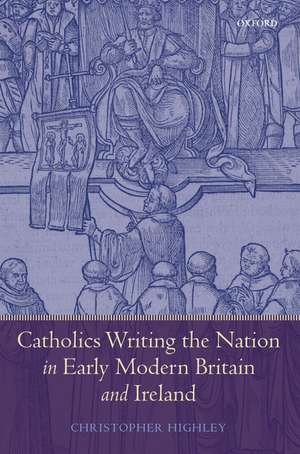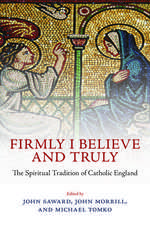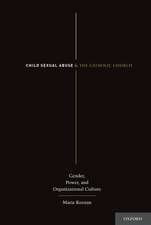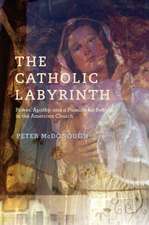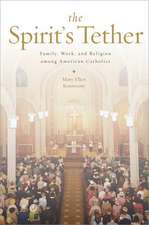Catholics Writing the Nation in Early Modern Britain and Ireland
Autor Christopher Highleyen Limba Engleză Hardback – 9 iul 2008
Preț: 774.78 lei
Preț vechi: 1174.75 lei
-34% Nou
Puncte Express: 1162
Preț estimativ în valută:
148.27€ • 154.23$ • 122.41£
148.27€ • 154.23$ • 122.41£
Carte tipărită la comandă
Livrare economică 04-10 aprilie
Preluare comenzi: 021 569.72.76
Specificații
ISBN-13: 9780199533404
ISBN-10: 0199533407
Pagini: 248
Ilustrații: 8 black-and-white halftones and engravings
Dimensiuni: 163 x 241 x 17 mm
Greutate: 0.58 kg
Editura: OUP OXFORD
Colecția OUP Oxford
Locul publicării:Oxford, United Kingdom
ISBN-10: 0199533407
Pagini: 248
Ilustrații: 8 black-and-white halftones and engravings
Dimensiuni: 163 x 241 x 17 mm
Greutate: 0.58 kg
Editura: OUP OXFORD
Colecția OUP Oxford
Locul publicării:Oxford, United Kingdom
Recenzii
a serious contribution to the debate on Catholicism in early modern Britain.
...a carefully measured and well reasoned work of unremitting scholarship
...captivating book...provides a fascinating insight into how English Catholics 'wrote the nation' at home and, above all, abroad..., the particular strength of this monograph lies in its excellent passages of political contextualisation.
there is no doubt that Catholics Writing the Nation is an important contribution to the study of both Catholicism and the development of national identity in early modern England
Highley is exemplary in giving platform time to all nationalities, discriminating among them as acutely as they did themselves
... this is a well-written and appealing book ... this study sheds important light on the differing ways in which exiles negotiated and reconciled being both English and Catholic.
...a carefully measured and well reasoned work of unremitting scholarship
...captivating book...provides a fascinating insight into how English Catholics 'wrote the nation' at home and, above all, abroad..., the particular strength of this monograph lies in its excellent passages of political contextualisation.
there is no doubt that Catholics Writing the Nation is an important contribution to the study of both Catholicism and the development of national identity in early modern England
Highley is exemplary in giving platform time to all nationalities, discriminating among them as acutely as they did themselves
... this is a well-written and appealing book ... this study sheds important light on the differing ways in which exiles negotiated and reconciled being both English and Catholic.
Notă biografică
Christopher Highley received his Ph.D. in English from Stanford University in 1990 and has taught since then at The Ohio State University. He is the author of Shakespeare, Spenser, and the Crisis in Ireland (Cambridge, 1997) and the co-editor of two collections of essays: John Foxe and his World (Ashgate, 2002) and Catholic Culture in Early Modern England (University of Notre Dame Press, 2007).
